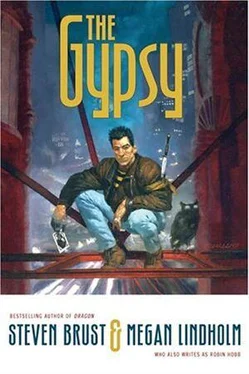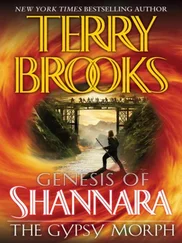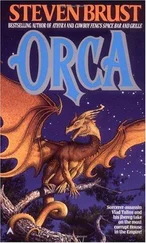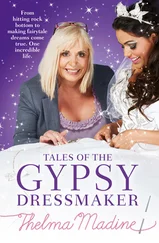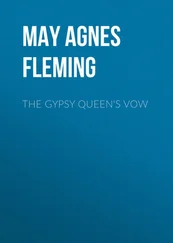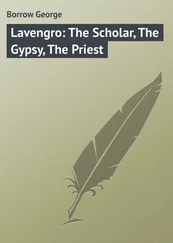The young policeman looked a fearful question at the old one, who shrugged.
The old Badger gently moved the girl, pushing her into Durand's arms. "All right," he said grimly,"Let's see what you've done to yourself." He gingerly knelt next to the Wolf and touched two fingers to the man's neck. "You'll be pleased to know that you have a pulse," he said. He moved his hand and deliberately pressed his thumb over the wound. The Wolf twitched once and his eyes closed. The girl cried out and struggled, but the young policeman held her,and spoke to her quietly.
The Gypsy put his arm around Daniel. Then he staggered and caught his balance as the whole world trembled. Cracks widened in the floor, in the walls,and the winds between the world blew through with the force of a gale, showing half a moon and half a sun.
"Gather close together," Csucskari shouted over the noise. "The Fair Lady is gone, and Her domain cannot stand without Her."
"What happens now?" asked Daniel. "Where do we go? How do we return?"
The Gypsy shrugged. "I don't know. Our task is done for this place. Of what comes after, I know nothing."
There was a sudden crack of sound that licked through the air like lightning. All, even the girl, lifted their eyes.
He was in black, but his eyes gleamed blacker. The cloak at his shoulders fluttered in the wind. His clever fingers played with the whip as a sardonic smile curved his lips.
"This way, if you please," he said, as if they had all the time in the world. "The coach awaits outside."
SEVENTEEN How They Came Back Home
ALL THE TIME IN THE WORLD
I gave you every chance to choose,
Mr. DeCruz.
"BACK IN TOWN"
He laughs into the wind.
Below him the coach clatters with all the right sounds,shakes in all the right ways. There are six horses pulling the coach, in rows of four and two; four of them he has conjured from the past, uncertain he'd be able to do so again,and two are new ones: the dark trace-horse and the fair off-wheeler. The new ones are uncertain, untrained, but he has four experienced horses to guide them. Twice, no more, he has cracked the whip over their heads, and now they run,knowing the hand upon the reins is sure. The six heads are stretched forth upon their necks as they charge into the gloom of the impossible place where all is possible, while he, the Coachman, guides them along paths of memory,chance, and choice.
Here, a wheel dips and splashes through a small puddle of fear, but he doesn't even slow. There, stray rocks of misfortune litter the path, but he guides the horses around them with the merest touch of the reins. Above, demons of frustration taunt and threaten, but there is a calk on the end of his whip, and he drives them away.
"So, how fast we going?" Ed knew it was a dumb question as soon as he asked it. But the wind in his face made him grin, and the simplicity of it all pleased him immensely. There were lights above them, glittering in the darkness, and a wide world stretched out around them. It was all a dream, and he knew it, just as he did when he dreamed of flapping his arms and flying through the sky. But now as then he figured, what the hell, enjoy it while you can, because he sure wasn't going to get it this good when he was awake.
"As fast as you wish, or as slow," said the Coachman, and they exchanged a knowing grin. Damn, he liked this guy. Ed vaguely remembered he'd been feeling sad about something, but now he couldn't remember what it was. He only knew that he was traveling, as he'd always wanted to. Moving through strange lands and peoples. The night wind smelled exotic, spices and smoke and foreign flowers. The air was warm on his face.
He leaned forward into it, admiring the Coachman's fingers on the reins, the way he talked to the horses. He suspected he could do that himself, after watching for a little longer. The Coachman teased the reins, and it was just like pressing down on the gas,there was the same smooth surge of speed.
"So, where we going?" he asked the Coachman.
The Coachman glanced at him, lifted one eyebrow sardonically. "Nowhere," he said. "Everywhere."For a long time the world rocked past them, smooth as bourbon. Ed caught a glimpse of lit windows, of a woman's face peering out into the night. The houses here were low, the roofs fat and rounded. Fields rustled with some grain crop between the houses. "Everywhere," the Coachman said again. "Everywhere but home."
Home.
And the word hung there silently like a curtain dividing them. Ed had a sudden sense that the Coachman didn't really know what it meant. Not like he did. The Coachman might know the whole world,hell, he might know every world there was, but there wasn't one that he could call home. Wasn't one where he knew every single alley, and knew what it looked like, winter or summer. Wasn't a place where he remembered what the empty lots looked like before they sprouted buildings. He'd never seen a nice neighborhood go slum, and then years later get religion and go condo and become exclusive. He'd never know the wide world encapsulated in a city the way Ed did.
"Want to go with me?" the Coachman asked.
For a long moment, Ed looked at the reins. Everywhere but home. Never that sigh at the end of the day, never the grocery clerk knowing your name, the paper boy yelling hi to you on the street. Never turning to a friend and saying, "I know this great little hole-in-the-wall restaurant." Never a bar where you could stand up and call over your shoulder as you walked out, "Put it on my tab." The price tag on all the worlds was to always be a stranger.
"Naw," Ed told him. "But it's been great to be along for the ride."
Worlds are spinning away beneath his wheels. A thousand possibilities, a million. Sometimes he thinks he knows what would be best. He thinks he could let one off here, put another there, and they would be happy. But it is not for him to decide. It is only for him to offer. He will not persuade, he will not dissuade. He offers, and he listens, as the horses run on under his hands.
The car interior smelled like furniture polish. The seats were deep, deeper than their family car, and Durand was sunk in his so far he could barely see out the window. His mom sat beside him, holding his hand. He wished she wouldn't. He'd been hugged,patted and held beyond endurance by well-meaning people attempting to console him. What he needed was to be left alone.
Sergeant Cleary was driving slowly. Giles Durand tried to see his face in the rearview mirror, but the sergeant's hat was low over his eyes. His hands looked strange on the wheel, skinny and freckled, not like his dad's hands had looked. He'd never see his dad's hands on a steering wheel again. It was another one of those thoughts; he knew it was true, but he didn't believe it. He kept looking into the empty passenger seat, knowing that if he saw his father there,he wouldn't be surprised. Someday, he knew, it would all become real, but it hadn't yet. He tried to listen to what his mom was saying.
"… change your mind. I know it's hard for you to understand…"
You'll understand when you're elder, son.
"… but you have to keep believing in everything he taught you, Giles. Daddy died, but he died doing what was right. That's what we have to hold on to.That he died for what he believed in, and we have to keep on believing in it…"
In the front seat. Sergeant shifted uneasily. He glanced back once at Giles, then shifted his eyes back to the road. His mother was still talking.
"That's what we have to remember. When you grow up and you're a policeman like Daddy, that's the code you'll have to live by, too. To do what's right, no matter what the cost. Your daddy believed in that, Giles. He lived for that, and he died for that,and that's what we have to remember about him. That's what everyone will remember about him, and the people he helped will always be grateful that he was that way."
Читать дальше
